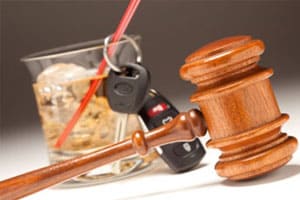
Results of a new study appearing in the Journal of Studies on Alcohol and Drugs suggest that many designated drivers do not in fact refrain from drinking alcohol when they take on that designation. Over a three-month period, researchers from the University of Florida, Gainesville interviewed more than 1,000 people and did breath tests to […]
 Results of a new study appearing in the Journal of Studies on Alcohol and Drugs suggest that many designated drivers do not in fact refrain from drinking alcohol when they take on that designation.
Results of a new study appearing in the Journal of Studies on Alcohol and Drugs suggest that many designated drivers do not in fact refrain from drinking alcohol when they take on that designation.
Over a three-month period, researchers from the University of Florida, Gainesville interviewed more than 1,000 people and did breath tests to determine whether designated drivers were abstaining from drinking alcohol and whether alcohol consumption by the designated drivers affected driving performance. The researchers recruited patrons leaving bars in a Florida city on Friday nights between 10 p.m. and 2:30 a.m., asking them to take a three- to five-minute survey and a blood-alcohol test. Of those who agreed to participate, 165 identified themselves as designated drivers, according to The New York Times.
Tests results were discouraging, the researchers reported: only 65 percent of the designated drivers showed no blood alcohol content, while 17 percent registered between 0.02 and 0.049 percent, and 18 percent measured 0.05 percent or higher. Under current law, the legal blood alcohol limit is 0.08, but last month the National Highway Transportation Safety Board (NHTSB) recommended lowering the limit to 0.05 percent, in an effort to reduce drunk driving deaths. The NHTSB said that over ten years, traffic deaths attributable to drunk driving were reduced by more than half in European countries that adopted a 0.05 limit.
In light of the findings, Adam E. Barry, the study’s lead author, an assistant professor of health education at the University of Florida expressed concern about the effectiveness of designated driver campaigns, the Times reports. “Often people choose designated drivers because they’re the ones who’ve drunk the least. The most practical recommendation is that if you drive, you shouldn’t drink at all.”
The researchers cautioned that their ability to generalize the results to other locations was limited because the sample was largely homogeneous: most of those in the study sample were young, white males in a college town. And the researchers say they could not confirm whether those who identified themselves as designated drivers actually did transport passengers.


